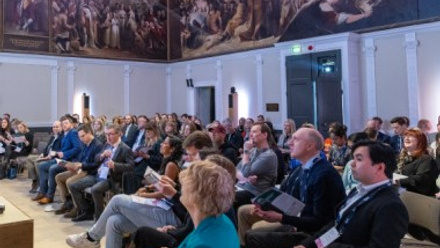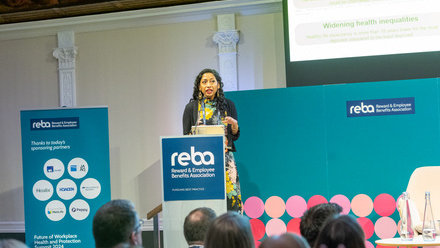REBA’s inside track: Three pandemic failures that will change HR and reward thinking
As those who focus on employee wellbeing are fully aware, a healthy workforce means a healthy organisation – in terms of culture, productivity and ultimately business success.

Two important reviews on this crucial area have reported updates within the past six weeks:
- The UCL Institute of Health Equity’s Build Back Fairer: The COVID-19 Marmot Review (published on 15 December 2020 and led by Professor Sir Michael Marmot)
- The Institute for Fiscal Studies’ (IFS) Deaton Review of Inequalities (update published on 5 January 2021 and led by Sir Angus Deaton).
Both primarily direct their conclusions to the UK government, but for employers wanting to get onto the front foot with future thinking for running a successful organisation in societies that will be greatly changed by the pandemic, the Deaton and Marmot reviews are well worth tapping into to cross check your big picture thinking and concepts for future HR and reward strategies.
I have pulled out just three key areas that come up in the reviews, which should cause HR, reward and benefits professionals to more than pause for thought when aiming to create sustainable organisations that are future fit.
1. Education and learning – the effect on talent, recruitment, diversity and inclusion
The disruption of education, the inability of all students to access their education, and the widening gaps between those benefitting from well-off homes and/or private education versus those from deprived backgrounds relying on government-funded schools, is creating an education deficit that will play through into the workplace within the next year or so, and cast a shadow for many years, or even generations, to come.
Employers competing for a smaller pool of (largely) privileged graduates and young people is not a feasible solution for future skills shortages. Revised recruitment, talent and learning programmes must be a serious consideration for employers wanting to push forward on inclusive, fair and responsible business.
Pandemic aside, we will need skills in the future that cannot be envisaged now. In the future, employers will not be able to hire all the newly-skilled talent they need, so they will have to ‘grow’ and develop their own. The catastrophic hit to education that started in 2020 should spur on employers (supported by government, hopefully) to act on life-long learning more pro-actively to attract those with the best potential.
2. Security of jobs and fair wages
There has been a socio-economic shift in the ability of many to do their jobs leading to an increase in depravation. Also, too many low-paid workers are unable to afford to put their health first even in the face of Covid-19 infection. This puts them at risk, it puts their co-workers and community at risk. It also lengthens the potential timescales of the pandemic right across our societies.
The correlation between earnings levels, material depravation and deaths from Covid-19 are well documented, including in the aforementioned Marmot and Deaton reviews. The low paid are more likely to contract Covid-19 and are more likely to die from it. There is also an intersectionality between low wages, insecure jobs, ethnicity, gender and disability.
Employers cannot unpick every cause of this unfairness, but they can consciously aim to pay fair wages and offer secure jobs, as well as analyse their HR data to check Covid-19 infection rates and deaths against workforce demographics in order to identify areas that need acting on.
Both reviews also remind us all that inequalities are not equal and need to be dealt with differently.
3. Preparing for future pandemics
East Asia, and to some level, Africa and the US have experienced biological outbreaks in recent years – from Swine Flu, Avian Flu to Ebola. We have been warned by zoologists, epidemiologists and other scientists for years that we are at risk of a pandemic, and there are further warnings that Covid-19 isn’t yet ‘the big one’. Whether we choose to believe the latter, we’d be naïve to think we will not see any biological outbreaks, of whatever scale, in the coming years.
This means that all shifts we have seen over the past 10 months need to be assessed for the long term. Asia did this some years ago, which allowed them to get back to business relatively quickly in the face of Covid-19. We in the West still have to learn that lesson.
One area that needs close review by HR is remote working. Working at home worked for some workers, but not others. Also, not all employees could do their jobs from home. This has opened up longer term unfairnesses and risks that cannot be brushed away with the assumption this is all temporary. We need better medium to longer term plans.
A second area for HR to focus on to be better prepared for the next pandemic is the current state of worker health. Before Covid-19 we were already experiencing an obesity ‘pandemic’, which links to the enormous global rise in non-communicable diseases (NCD). Employees who are obese or are dealing with a NCD such as diabetes, cancer or heart disease, are far more vulnerable to death if they contract Covid-19. Employers which step up on wellbeing and prevention programmes can assist governments and other bodies in improving population health, and reducing deaths during future outbreaks.
This pandemic has broken down structures that previously inhibited change. For example, millions of people who have never had a brush with the benefits system, now have had to claim government support. In time this could lead to general public rethinking of the risks and funding associated with these benefits. The same is true for group risk employee benefits and employee assistance programmes, as more employees use these previously under-utilised employer perks, so they will adapt. There are no doubt other structures that have and will shift long held views.
The emphasis now cannot be to work our way back to the way things were, we have to forge forward along new and untested paths. We can either be forced blindly along these paths, or take time to think through the ramifications of what we now know and can forecast. Then regularly review as more changes become evident.
The author is Debi O’Donovan, co-director at REBA.






